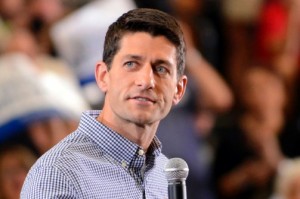The nomination of Paul Ryan puts an important issue—the country’s fiscal direction—on the table. It also indicates that Team Romney realizes this issue matters and must be addressed in the campaign. However, it is not entirely clear that Ryan’s selection raises this topic in a way that will help Romney’s chances in November.
Ryan is best known for his proposed budget, which would dramatically reform Medicare. In a June 2011 CNN poll, 58 percent opposed Ryan’s plans for Medicare with only 35 percent in support—and a tremendous 74 percent of seniors opposed. That same month, a Pew Research Center survey found that Americans disliked Ryan’s plan to change Medicare into a voucher system by a margin of 41-36; and for adults over 50, the margin was 51-29. Meanwhile, in an April 2011 CBS News/New York Times poll, 61 percent of those surveyed felt Medicare was worth the costs.
The New York State 23rd district special congressional race last year—which Democrats made into a referendum on the Ryan plan—further illustrates the political problems with Ryan’s views. Democrat Kathy Hochul used campaign ads showing a Paul Ryan look alike pushing a wheelchair-bound granny off a cliff—and she ended up capturing a safe GOP seat.
It bears remembering that Republicans won the 2010 midterm elections in part by arguing that Obamacare would gut Medicare. In that election, senior voters favored Republicans by a 21-point margin. Now, however, Republicans have a vice-presidential nominee who wants to dramatically alter Medicare. It seems hard to envision senior voters responding well.
To be sure, while the polling on Ryan’s Medicare proposal is bleak for Republicans, the polling on Ryan personally is more mixed. According to Public Policy Polling, Ryan’s favorable-unfavorable rating in Wisconsin was 38-30 in late 2010, 36-35 in early 2011, 41-46 in May 2011, and 44-39 last month. On the national stage,Rasmussen found that Ryan has a 39-25 favorability rating. But Gallup found that the public’s response to Ryan’s selection was one of the worst in the recent history of vice-presidential nominations: 39 percent said Ryan was an excellent or pretty good selection, while 42 percent felt he was an only fair or poor selection.
Given all this, Romney may have no choice but to distance himself from some of Ryan’s views. Otherwise, it seems very possible that Ryan will end up hurting, rather than helping, him in November.


